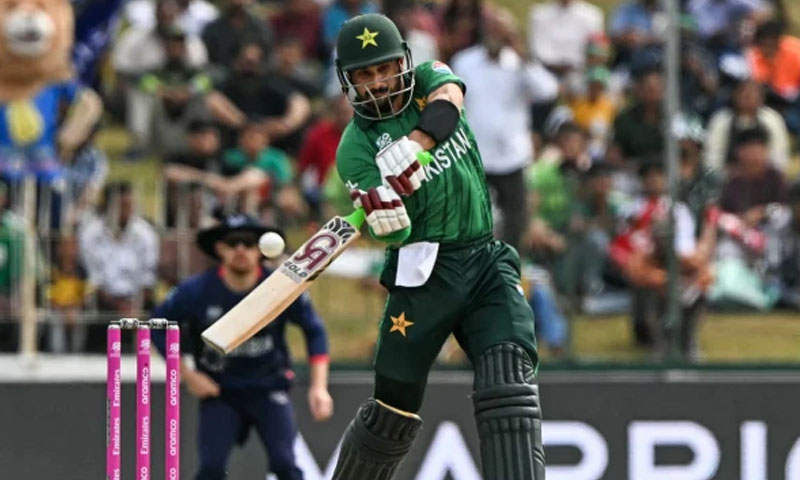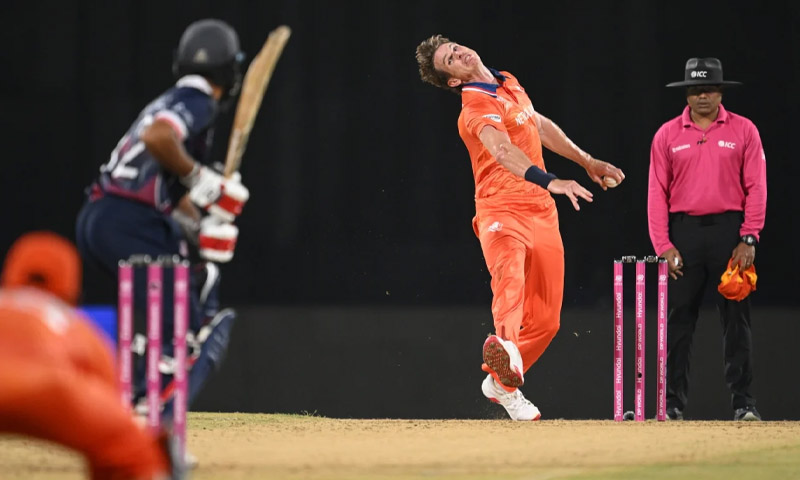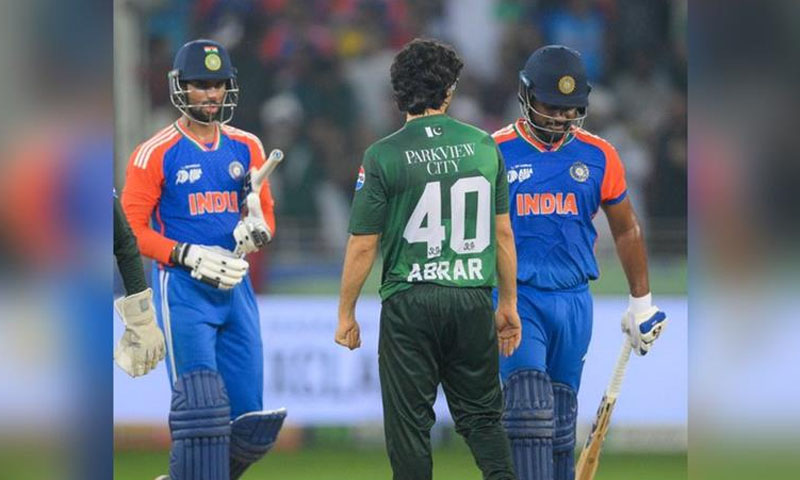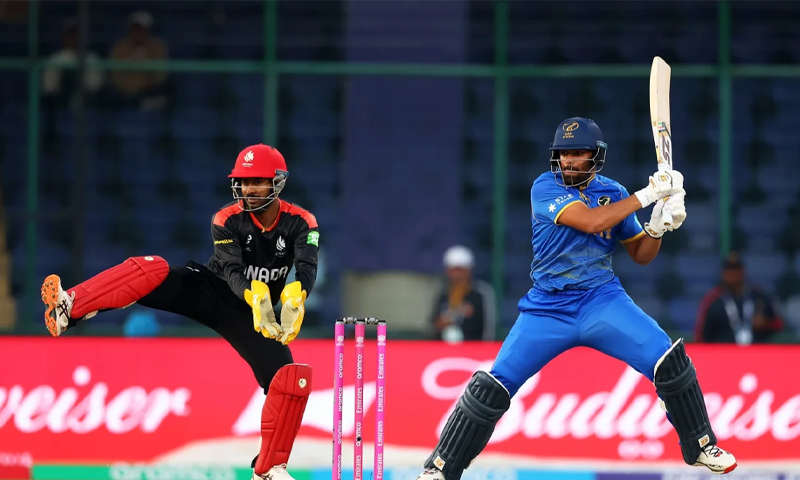- Web Desk
- Feb 18, 2026
The bad precedent set by the 2025 Champions Trophy
-

- Ahmad Afzal
- Mar 08, 2025

With the ICC Champions Trophy 2025 coming to a close this Sunday, it’s the perfect time to look back on the tumultuous journey that preceded the tournament. One that featured a hybrid model agreement that will define India and Pakistan’s cricket relations for at least the next few years, and possibly longer.
It wasn’t too long ago that it seemed as if India wouldn’t participate in the Champions Trophy. After declaring that the team wasn’t willing to travel to Pakistan, a feud erupted that had many questionings what would happen to the tournament. Some believed that the it would be taken out of Pakistan. Others thought that India might be replaced by another team. However, the hybrid-model that they settled on allowed for the Champions Trophy to progress with the original eight teams, with India’s matches taking place in Dubai.
An Unfair Advantage
At the time fans and the PCB were simply happy to see an ICC tournament take place in Pakistan for the first time in 29 years. It marked the end of various cricketing countries’ security concerns that plagued Pakistan since 2009, albeit with the exception of India. However, now that the tournament is nearly completed, it may be time to take another look at the deal, and see just how fair it was.
In regards to the Champions Trophy itself, India was indubitably graced with the biggest advantage of all competing teams, something that’s been pointed out by many analysts since the tournament began. Namely, the opportunity to play all their matches on a single ground. While other teams travelled between Lahore, Karachi, and Rawalpindi, readjusting to the different demands of each ground, India were able to construct their squad with only one pitch in mind. All teams came to them, and played on a ground that only one team was prepared for.

Whether India would have won their three-group stage matches, and the semi-final, while playing on equal footing with the other teams will never be known. Even without the advantage, the Indian team is arguably the strongest in the tournament, with a plethora of world class talent. However, anything can happen on a tournament of this scale. The possibility for an upset is always present, especially when playing on multiple grounds that one isn’t used to. But, India was able to mitigate that chance, allowing their players to present the best version of themselves. That lack of adversity, which every other team had to face, may be why cricket fans will see them lift the trophy this Sunday.
Also read: Bangladesh’s Mushfiqur Rahim retires from ODI cricket
Implications for the Future
But, the implications of the hybrid model don’t end when the Champions Trophy does this Sunday. The agreed upon model will apply to all ICC tournaments that are hosted by either Pakistan or India during the 2024-27 event cycle. In the remaining three years, two tournaments will be held in India, the first of which is the 2026 T20 World Cup. However, the only real concession being made is that the 2025 Women’s World Cup hosted by India, which will require a neutral venue for Pakistan’s matches.
This is due to the fact that the 2026 T20 World Cup was already planned to be a hybrid model, as India are co-hosting with Sri Lanka. Multiple stadiums will be used in both countries, meaning that Pakistan will likely have to travel between multiple pitches. In other words, they won’t receive the same advantage that India currently is. Regardless, the more important fact is that the tournament was already planned with two hosts in mind, meaning that India weren’t required to make a concession in the hybrid model deal. In fact, India are still the ones receiving an advantage, as they are able to play in their home stadiums, despite the tournament originally being planned to be hosted by Sri Lanka alone.

The reason given for India’s inclusion as a host is that there aren’t enough grounds available in Sri Lanka. However, the country has four grounds with a capacity over 35,000, three with 15,000 or over, and two with 10,000 or over, all of which can be upgraded. Had that not been enough, Bangladesh could have been included as a co-host instead. Yet, India was chosen, despite the myriad of events they have already hosted since 2000, including the 2006 Champions Trophy, the 2016 T20 World Cup, the 2011 ODI World Cup, and the 2023 ODI World Cup. They are also set to host the 2029 Champions Trophy and co-host the 2031 ODI World Cup, along with the 2026 T20 World Cup.
Also read: Steven Smith retires from ODI format effective immediately
A Turning Point
One other ‘concession’ made by the ICC was awarding Pakistan the 2028 Women’s T20 World Cup. The issue is, that there’s no guarantee that won’t be subject to the hybrid formula as well. That is the primary issue with this Champions Trophy. It sets a precedent that anytime India refuse to travel, a hybrid model can be adopted, providing an unfair advantage to the country playing in a neutral location, as well as undermining the efforts and investments made by host nation to put on a world class event.
That 2028 World Cup will be a pivotal point in India and Pakistan’s relationship, as it is the first event after the hybrid model’s agreed upon time span, 2024-27, ends. If India once again does not travel for the tournament, Pakistan will likely stand their ground, refusing to send their team for the 2029 Champions Trophy taking place in India.

India holds all the power in this relationship, but Pakistan will retaliate if they believe they are being treated unjustly. The main losers of the two countries’ arguments are cricket fans around the world, who want to see the biggest rivalry the sport has to offer take place without ICC events being held hostage.
The precedent India has set leaves the door open for other countries to do the same in the future, if they believe travelling for a tournament isn’t in their best interests. Will the ICC accommodate them as well? If they do, this issue will likely spiral until it becomes difficult to hold any international events in the sport.
Also read: UFC 313: Pereira’s toughest test and Gaethje’s last title run




